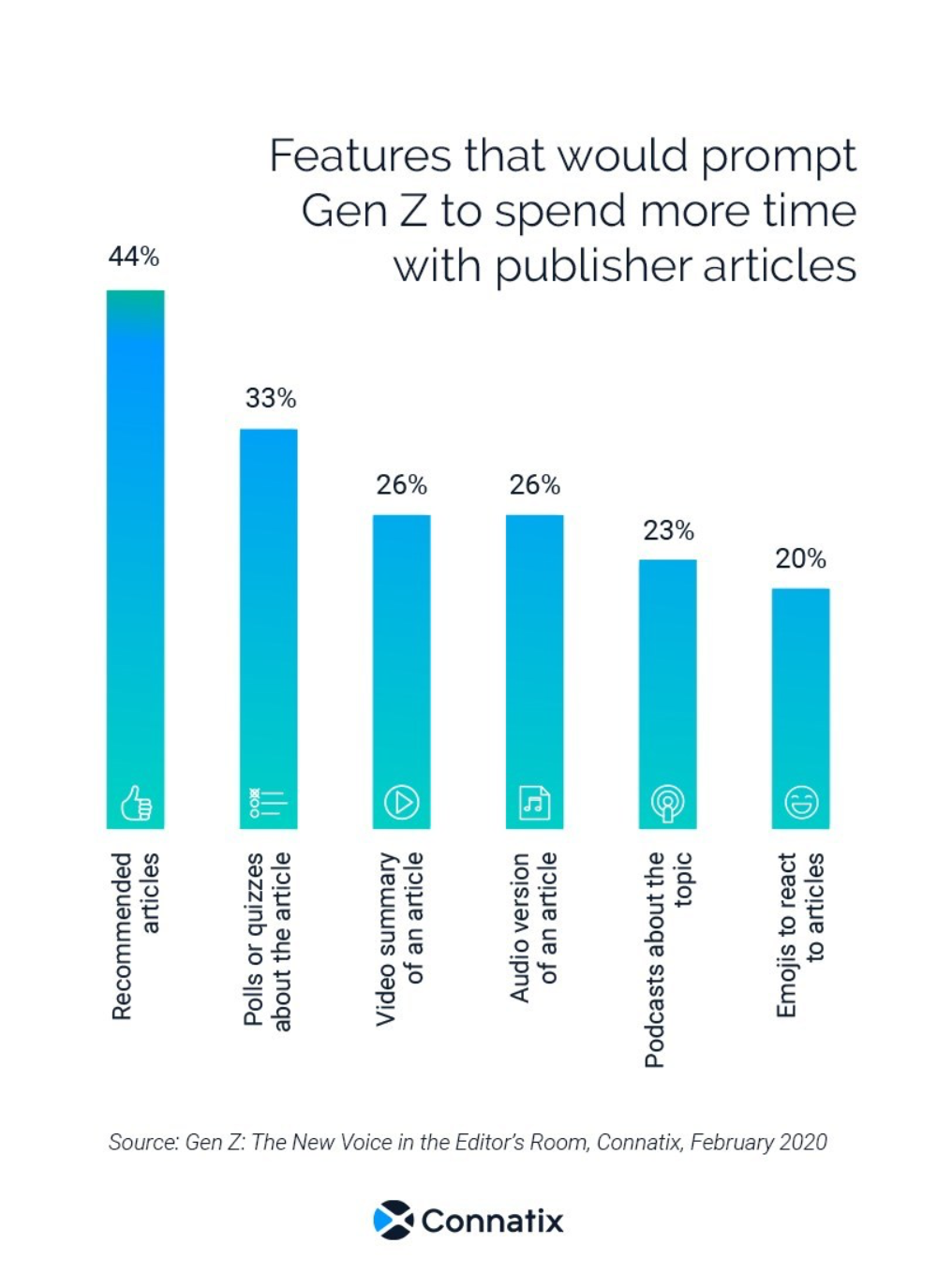Connatix, a next-generation video technology company for publishers, has announced the findings of a study it conducted about the media consumption habits and preferences of Gen Z, that indicates members of this generation (aged up to 22 years) gravitate toward a “multifaceted content experience,” rooted in user recommendations from a diverse set of channels and formats.
The report, “Gen Z: The New Voice in the Editor’s Room,” concludes that “For Gen Z, media consumption is about having more of everything to maximize a piece of content, said David Kashak, CEO of Connatix.
“Gen Z wants more video, more audio, and more feedback loops integrated into their content,” he adds. “They have a high regard for curation and recommendations, and will use these features in concert with social media and UGC as a North Star for the stories they ultimately delve into more deeply on publishers’ sites.”
Other key findings of the report include:
° Forty percent of respondents from each group said they comment on news on social media, but Gen Z is more inclined (28% of respondents) to comment directly on news sites, compared to Millennials (20%), Gen X (24%), and Boomers (15%).
° Gen Z respondents (44%) said they spend more time with news articles when they are recommended to them.
° Gen Z gravitates toward Reddit (30%) as a news source more than the other groups, with zero percent of Boomers citing a preference for Reddit.
° Thirty-three percent of Gen Z respondents expressed a preference for articles that contain interactive features such as polls or quizzes; 26% remain engaged with content that contains video summaries.
° Short video ads (under six seconds) have grown in popularity with advertisers and across viewers of all generations, however Gen Z is twice as willing as Millennials to watch longer form video ads (over 20 seconds).
° Twenty-six percent said relevant audio content keeps them engaged longer with news articles, compared to Millennials (17%), Gen X (14%) and Boomers (9%).
Gil Sommer, VP of Product at Connatix, explained that for Gen Z, a group less shaped by broadcasted radio than Millennials, Gen X, and especially Boomers – for whom radio was the main source of discovery for music and current events – “audio is the latest way for Gen Z to access even more content when they’re on-the-go or multi-tasking. They can listen to a podcast or audiobook on their commute, while doing the laundry, or while at work. The form factor of Apple and Spotify’s on-demand model have made it especially easy for Gen Z to embrace audio content.”
Additionally, Gen Z expressed more of a willingness than other groups to pay for content that meets their experiential demands. Twenty-five percent of Gen Z respondents said they were willing to pay $10 a year for subscriptions that included premier features like personalized podcasts, expert videos, and unbiased news, compared to only 11% of Boomers who said they would pay for targeted podcasts.
“As Gen Z begins to lead the way in terms of shaping how stories are told based on the features they like to engage with, publishers must pay attention to their needs and preferences as influential drivers of revenue,” said Jenn Chen, CRO of Connatix. “One of the most fascinating things the research uncovers is that Gen Z may actually be more accepting of ads because they mimic the large volumes of short-form content they already consume. When the ads are humorous, relevant, and engaging, the feeling that it is averting the viewer may not be as strong as it can be with other, longer forms of content.
You can download the report here. Connatix polled over 1,000 U.S. consumers across generations including Baby Boomers, Gen X, Millennials, and Gen Z. The goal was to understand how Gen Z differs from the other groups in how they engage with content across traditional, social and digital media and their preferences for content features such as video, audio, and the ability to comment on that content.





